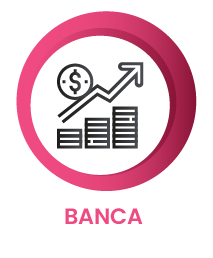- The fact that they’re present on social networks and have high productivity in technological positions, added to the increase in the importance of emotional intelligence, have made digital workers the most demanded profiles.
- The generations marked by the technological boom, such as millennials and the Z generation, will make up more than half of the labour market.
Talent retention is one of companies’ top priorities, and more so when it comes to digital profiles. 9 out of 10 jobs already require technological knowledge and the demand for ICT employees is growing at an annual rate of 3%. By 2020, there will be a shortage in the European labour market of up to 900,000 professionals with experience in certain digital disciplines, according to data from the European Union’s IMMUNE Report. As a consequence, the connected employee has become a company’s most important asset.
Companies are implementing employer branding strategies to improve how these employees perceive the company from the minute they join. Measures that improve digital professionals’ experience are essential for gaining employee loyalty, which is why workers’ initiative is favoured when it comes to contributing ideas, rigid corporate protocols are being softened and more benefits are being offered in exchange for greater commitment.
What are the 4 reasons why the connected employee has become a company’s most important asset?
- They contribute to improved branding on Social Networks. The presence of the digital employee on social networks shouldn’t be taken lightly and should be seen by the company as an opportunity, as a channel that can attract new talent to the company. It is key that these interactions come from the employees’ own initiative and that they do it by sharing photos at work, of company products or teambuilding activities.
- The concern for emotional intelligence is constantly increasing. The development of corporate strategies that focus on employee wellbeing makes them happier at work. Connected employees want to improve their work-life balance through the technological tools they use in their private life.
- Their high performance guarantees higher productivity. In addition to emotional wellbeing, digital employees need an environment adapted to their abilities that allow them to achieve more effective results. It is essential that they have autonomy and the necessary technological tools. In this sense, performance assessments that verify the correlation between the functions and the skills of the connected employee, allow for the evaluation of their possibilities. If you get a good combination of both factors, your productivity will improve.
- They are creative and easily adapt to new tasks. Company digitalisation requires being in a state of constant change, meaning that digital employees carry out their tasks while facing continuous problems which they have to respond to in a creative way. These situations mean that on certain occasions they have to take on additional tasks to those they normally have, which makes being a connected and flexible worker a plus for companies.
2




